Concertgebouworkest & Eduard van Beinum - Schubert: Symphonies 3, 4, 5, 6, 8; Rosamunde (1952)
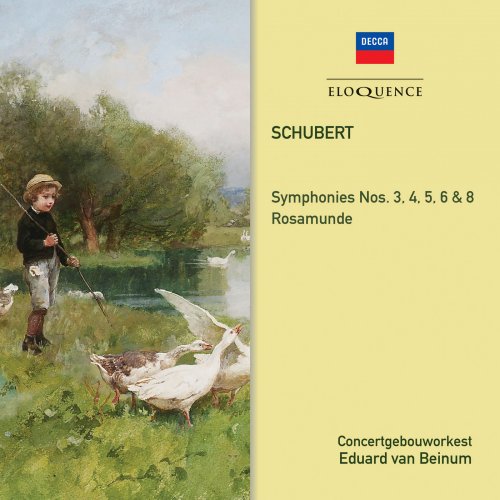
Artist: Concertgebouworkest, Eduard van Beinum
Title: Schubert: Symphonies 3, 4, 5, 6, 8; Rosamunde
Year Of Release: 1952
Label: Universal Music Australia Pty. Ltd.
Genre: Classical
Quality: flac lossless (tracks)
Total Time: 02:30:05
Total Size: 468 mb
WebSite: Album Preview
TracklistTitle: Schubert: Symphonies 3, 4, 5, 6, 8; Rosamunde
Year Of Release: 1952
Label: Universal Music Australia Pty. Ltd.
Genre: Classical
Quality: flac lossless (tracks)
Total Time: 02:30:05
Total Size: 468 mb
WebSite: Album Preview
01. Schubert: Symphony No. 4 in C minor, D.417-"Tragic"-1. Adagio molto-Allegro vivace
02. Schubert: Symphony No. 4 in C minor, D.417-"Tragic"-2. Andante
03. Schubert: Symphony No. 4 in C minor, D.417-"Tragic"-3. Menuetto (Allegro vivace)
04. Schubert: Symphony No. 4 in C minor, D.417-"Tragic"-4. Allegro
05. Schubert: Symphony No. 5 In B Flat, D.485-1. Allegro
06. Schubert: Symphony No. 5 In B Flat, D.485-2. Andante con moto
07. Schubert: Symphony No. 5 In B Flat, D.485-3. Menuetto (Allegro molto)
08. Schubert: Symphony No. 5 In B Flat, D.485-4. Allegro vivace
09. Schubert: Rosamunde, D.797 (Incidental music to Helmina von Chézy's Play)-Overture (Die Zauberharfe, D.644)
10. Schubert: Rosamunde, D.797 (Incidental music to Helmina von Chézy's Play)-Entr'acte No. 1
11. Schubert: Rosamunde, D.797 (Incidental music to Helmina von Chézy's Play)-Ballet Music No. 1-Andante un poco assai
12. Schubert: Symphony No. 3 in D, D.200-1. Adagio maestoso-Allegro con brio
13. Schubert: Symphony No. 3 in D, D.200-2. Allegretto
14. Schubert: Symphony No. 3 in D, D.200-3. Menuetto (Vivace)
15. Schubert: Symphony No. 3 in D, D.200-4. Presto. Vivace
16. Schubert: Symphony No. 6 In C, D.589-"The Little"-1. Adagio-Allegro
17. Schubert: Symphony No. 6 In C, D.589-"The Little"-2. Andante
18. Schubert: Symphony No. 6 In C, D.589-"The Little"-3. Scherzo (Presto)
19. Schubert: Symphony No. 6 In C, D.589-"The Little"-4. Allegro moderato
20. Schubert: Symphony No. 8 In B Minor, D.759-"Unfinished"-1. Allegro moderato
21. Schubert: Symphony No. 8 In B Minor, D.759-"Unfinished"-2. Andante con moto
The name of Eduard van Beinum may too often be overlooked among the music directors of Amsterdam’s Royal Concertgebouw Orchestra, in between the longer and more internationally renowned tenures of Willem Mengelberg and Bernard Haitink. But this is a wrong that Eloquence has put to right with the reissue of the greater portion of Van Beinum’s recorded work with the orchestra on both Decca and Philips. The conductor has been revealed anew as an interpreter of lucidly-phrased fidelity to the score and uncommon sensitivity.
The present issue brings repertoire especially close to Van Beinum’s heart. He was a master Schubertian who needed to be taught no lessons by the nascent period-instrument movement on nurturing a hop, skip and jump in the composer’s effervescent orchestral textures or coaxing a sweetly flowing lyricism from their sunny complexions.
The newly written booklet appreciation of Van Beinum by Niek Nelissen looks to his roots in a farming family for his particular sympathy with the composer: his colleague and former artistic director of the Concertgebouw remembered his aversion ‘to anything that was unnatural or artificial; [he] looked for the most natural way in everything. In his conducting, he aimed for the same simplicity and lack of affectation that attracted him in the music he loved most.’
Ranging from the late mono to the early stereo era, the recordings begin with a driven and thrilling Fifth Symphony from September 1946: one of the first postwar recordings made by Decca with the orchestra. In fact, fleet tempi mark out all these recordings from most of their contemporaries as does the inclusion of many repeats. The Third (1955) and Sixth (1957) are particular highlights: in the last five years of his life, Van Beinum conducted these more frequently than any symphony by Beethoven. Even the ‘Unfinished’ (also from 1957) is full of pathos but unburdened by anachronistically Romantic weight and sentiment, stylistically some years ahead of its time.
This generously filled twofer is completed by 1952 recordings of the Fourth Symphony and incidental music from ‘Rosamunde’ both masterminded at the control desk by the legendary Decca producer, John Culshaw.
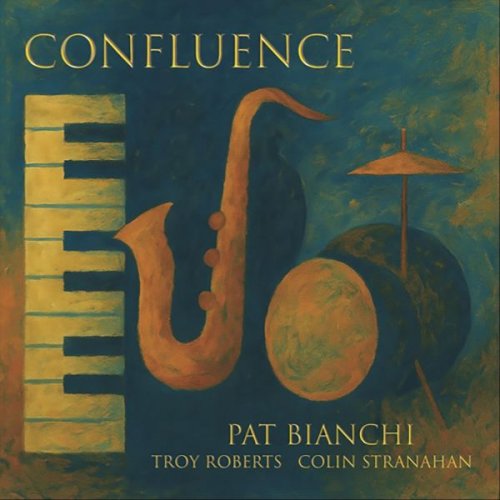
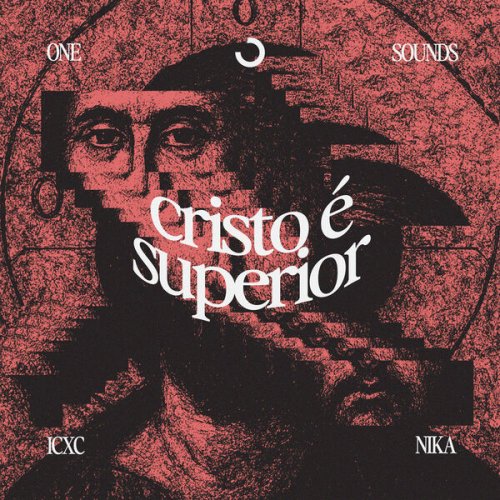

![Louis Billette - Lux II (2026) [Hi-Res] Louis Billette - Lux II (2026) [Hi-Res]](https://img.israbox.com/img/2026-03/02/mruoenouefcb2wvik5oje90ha.jpg)
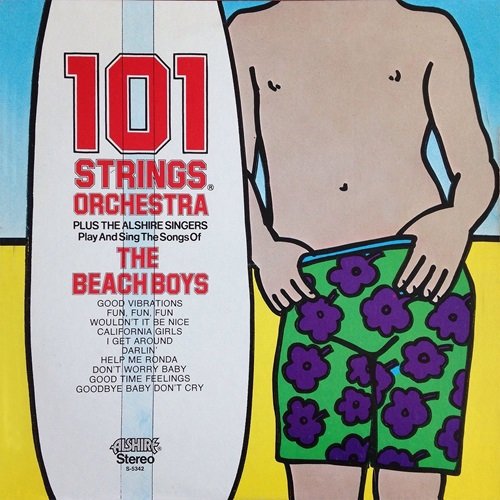
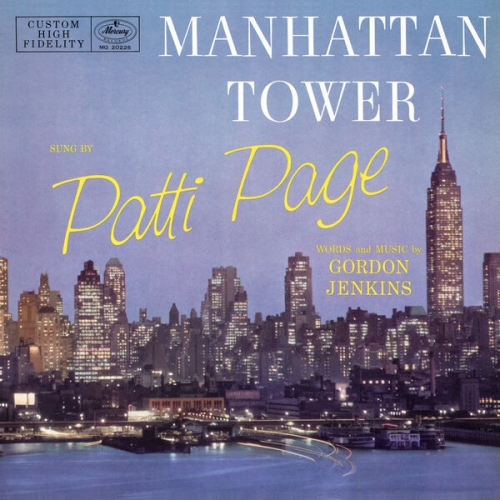
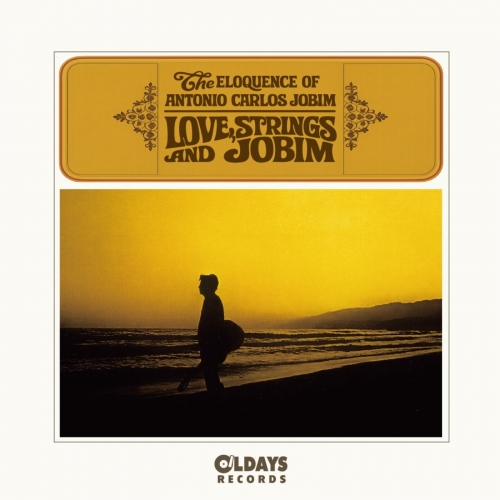
![Dub Colossus - Dub Will Keep Us Together (2026) [Hi-Res] Dub Colossus - Dub Will Keep Us Together (2026) [Hi-Res]](https://www.dibpic.com/uploads/posts/2026-03/1772556292_folder.jpg)
